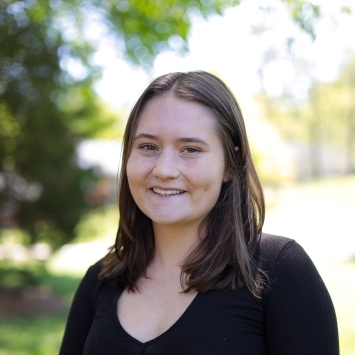Student Involvement
Learning Beyond the Classroom.
Many students choose to pursue experiential learning opportunities related to public health policy, programs, or research.
Whether you are a public health student or not, there are ample opportunities to hear from leaders in the field through guest lectures, talks and educational events. Through Speas funding, Warner Hall Eating House students had the chance to chat about the public health implications of the global HIV/AIDS crisis with Dr. Shannon Hader, Former Assistant Secretary-General of the United Nations.

We were honored to have Dr. Hader speak with our members regarding the real-life public health implications of the global HIV/AIDS crisis. Dr. Hader’s advocacy and research inspires the philanthropic spirit of Warner Hall and its members. Through a casual lunch at Warner, Dr. Hader was able to converse with our members and offered invaluable career advice to our members interested in public health and medicine. Dr. Hader’s visit reaffirmed the global need for strong advocacy of HIV/AIDS programs and support.
Service Co-Chair, Warner Hall Eating House
We are excited to announce the second year of the West Virginia Behavioral Health Practicum Pilot, an experiential learning opportunity in partnership with the WV Department of Health and Human Resources, Bureau for Behavioral Health (WVBBH). Participating students gain experience working on mental health and the overdose epidemic in a health department in an underserved state, including topics such as stakeholder engagement, health equity, compassion fatigue, stigma reduction, and health workforce shortages in the wake of the COVID-19 pandemic.
Email publichealth@davidson.edu for more information.
Established by Mary Kathryn Rains Poole '09 and Blake Poole '08, this fund provides assistance to students participating in unpaid or low-paying experiential learning opportunities related to public health policy, programs, or research. The student must pursue projects that align with an interest in public health.
For more information, email publichealth@davidson.edu.
While at Davidson, computer science and economics student Alex Hazan '20 used his computer science and economics knowledge to study the effect of the anti-vax movement on herd immunity, which occurs when a significant majority of a population is vaccinated, effectively insulating any vaccinated people from disease. Hazan developed a simulation model based on 1,500 people in six school districts, dividing students, teachers and parents into separate categories. He recorded the normal connections they would make with each other, and eventually, with people in other districts. He then simulated a series of measles outbreaks and examined the spread of measles in populations where vaccinations were evenly spread through the districts and in those where anti-vaxers were concentrated in one or two districts.
Begin your experiential learning journey.
Get support for internships, research, community-based learning and study away opportunities.